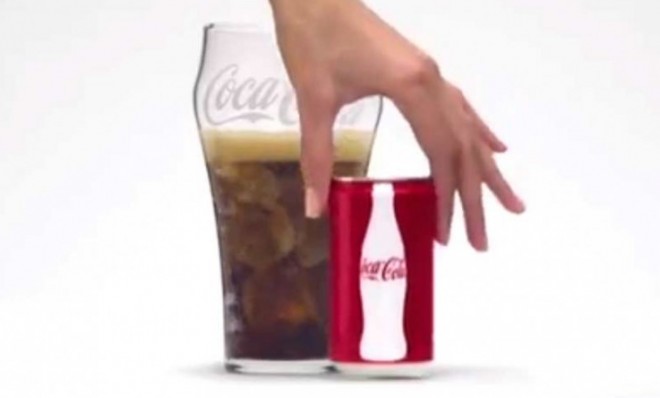Can Coke's new anti-obesity ads actually lower obesity rates?
And is the soda giant making an honest attempt to improve public health, or just engaging in damage control?


A free daily email with the biggest news stories of the day – and the best features from TheWeek.com
You are now subscribed
Your newsletter sign-up was successful
In an attempt to reassure consumers that drinking sugary, carbonated beverages is a-okay, Coca-Cola has released two new commercials highlighting the ways the company is helping to reduce obesity. "Across our portfolio of over 650 beverages, we now offer over 180 low- and no-calorie choices," says the narrator of one commercial, titled "Come Together." The ad goes on to say that calories from soda are no different than any other calories we put into our bodies every day, and suggests that it's the consumer's responsibility to burn off what he or she takes in. A second commercial says a can of Coke contains 140 "happy" calories that can be spent doing "happy" things, like walking your dog and laughing out loud. Here's the second ad:

The commercials are being touted as brilliant marketing. They associate sugary drinks with "happiness, fulfillment, and having fun," says Nancy Huehnergarth at The Huffington Post. But they don't really attempt to address obesity, says Michael F. Jacobson, executive director of the Center for Science in the Public Interest. "The soda industry is under siege, and for good reason," he says, and clearly, Coke is trying to control its image.
It's commendable that Coke is acknowledging the country has an obesity problem, but these commercials gloss over the fact that calories from soda are worse than other calories, says New York Times food columnist Mark Bittman. Remember: "Even when they're apologizing for that, as they appear to be doing here — they're still selling them."
The Week
Escape your echo chamber. Get the facts behind the news, plus analysis from multiple perspectives.

Sign up for The Week's Free Newsletters
From our morning news briefing to a weekly Good News Newsletter, get the best of The Week delivered directly to your inbox.
From our morning news briefing to a weekly Good News Newsletter, get the best of The Week delivered directly to your inbox.
So what impact will Coke's new message have on soda consumption? Not much, probably. (A recent study conducted by the CDC’s National Center for Health Statistics found that sugary drinks account for 6 percent of American adults' calorie intake.) Remember, "Big Soda spends big dollars on these types of campaigns, because they work," Huehnergarth says. Public health advocates would be wise to counter this campaign with one of their own, but it's hard to compete with big companies that have the money to promote their products everywhere. Until public health campaigns get proper funding, Huehnergarth says, "progress in lowering consumption of sugary drinks will be slow. And more Americans will get sick and die."
A free daily email with the biggest news stories of the day – and the best features from TheWeek.com
Jessica Hullinger is a writer and former deputy editor of The Week Digital. Originally from the American Midwest, she completed a degree in journalism at Indiana University Bloomington before relocating to New York City, where she pursued a career in media. After joining The Week as an intern in 2010, she served as the title’s audience development manager, senior editor and deputy editor, as well as a regular guest on “The Week Unwrapped” podcast. Her writing has featured in other publications including Popular Science, Fast Company, Fortune, and Self magazine, and she loves covering science and climate-related issues.
-
 Trump’s EPA kills legal basis for federal climate policy
Trump’s EPA kills legal basis for federal climate policySpeed Read The government’s authority to regulate several planet-warming pollutants has been repealed
-
 Political cartoons for February 13
Political cartoons for February 13Cartoons Friday's political cartoons include rank hypocrisy, name-dropping Trump, and EPA repeals
-
 Palantir's growing influence in the British state
Palantir's growing influence in the British stateThe Explainer Despite winning a £240m MoD contract, the tech company’s links to Peter Mandelson and the UK’s over-reliance on US tech have caused widespread concern
